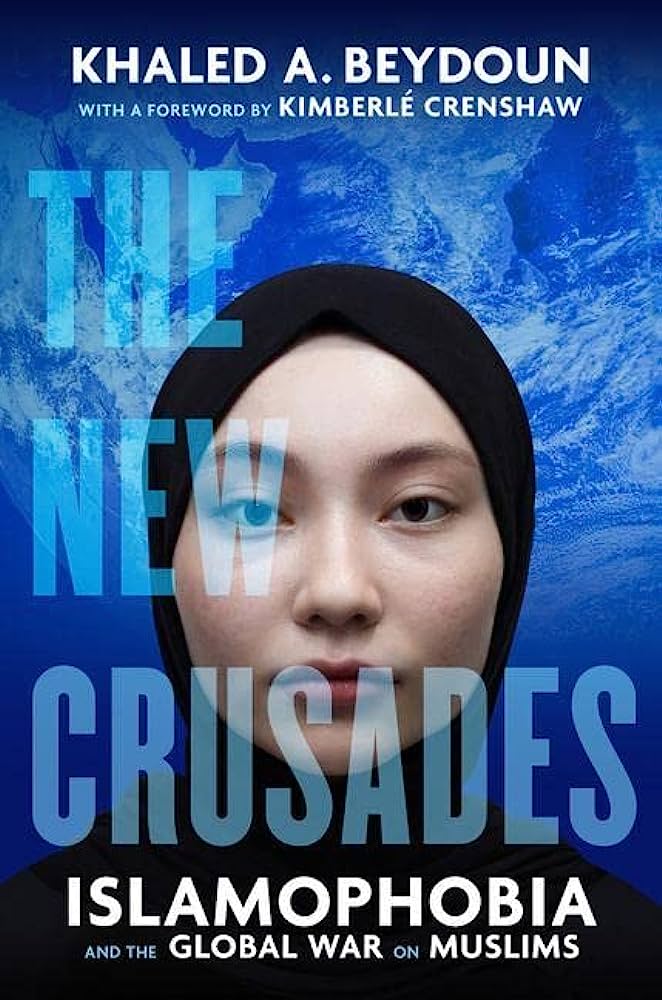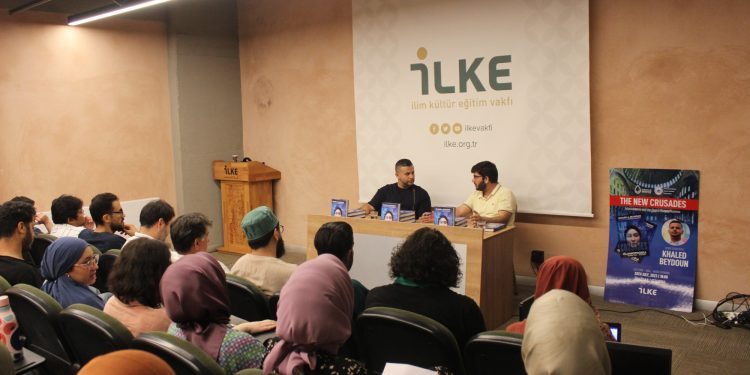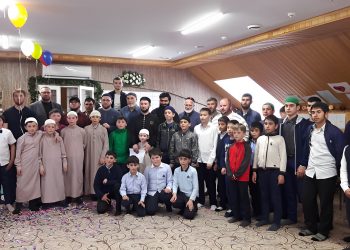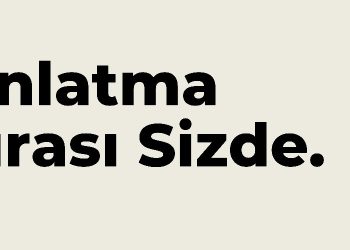In the İLKE Agenda seminar series, an insightful conversation took place, featuring a discussion about the recently published book, “New Crusades: Islamophobia and the Global War on Muslims,” authored by activist, writer, and law professor, Khaled Beydoun. The engaging dialogue delved into the thought-provoking themes and perspectives presented in the book, offering attendees a deeper understanding of the pressing issues surrounding Islamophobia and its impact on Muslims worldwide.
Beydoun explained that the term “new crusades” used in the book’s title is meant to signify that Islamophobia is a modern-day iteration of the historical crusades. He pointed out that following the September 11 attacks, the Bush administration conducted campaigns under the guise of the “war on terror,” which systematically targeted Muslims and Islam. These campaigns, as Beydoun stressed, served as the catalyst for the emergence of contemporary Islamophobia. Referring to the distorted perceptions and narratives surrounding Muslims and Islam, he labelled it as the “new crusades.” He emphasized that the actions falling under the umbrella of “Islamophobia” share a parallel with the crusades that originated in the 11th century, with both espousing similar rhetoric.
Beydoun asserts that Islamophobia manifests in diverse forms, exhibiting variations in structure and ideology across different regions, including China, Myanmar, and the USA. To address this diversity, the author systematically analyses Islamophobia in his book, categorizing it into three fundamental types: Private, Structural, and Dialectical. Private Islamophobia involves the targeted fear, suspicion, and violence directed at Muslims by private actors. This form of Islamophobia arises from individuals’ limited knowledge and preconceived notions about Islam and its followers. For instance, incidents such as the tragic murder of three Muslim American students in Chapel Hill in 2015, or attacks on mosques and individuals, fall under the purview of individual Islamophobia.

Structural Islamophobia is governed by state policies. It involves the unveiling of fears and concerns about Muslims through laws and regulations at the administrative level. Islamophobic practices orchestrated by the state yield more systematic and widespread effects. For instance, laws like the Patriot Act and the Combatting Violent Extremism Act in the USA have targeted Muslims and contributed to the production of Islamophobia.
The third type, dialectical Islamophobia, denotes a process in which structural Islamophobia finds resonance and approval within society. When the state targets Muslims, and subsequently, the public exhibits discriminatory behaviours towards them, it gives rise to dialectical Islamophobia. In this interconnected dynamic, the discriminatory actions of both the government and the public reinforce and perpetuate the negative attitudes towards Muslims.
Beydoun highlighted that by considering these categories, the epicentres of Islamophobia are identified in China and India, where various forms of Islamophobia are prevalent.
During the seminar, which progressed and delved deeper with the questions from Moderator Ahsan Shafiq, Beydoun was asked about the solution to Islamophobia. In response, he expressed a sense of hope, noting that he sees a glimmer of light at the end of the tunnel. Beydoun emphasized the importance of confronting Islamophobia with a strong and vocal stance, rather than remaining silent.
He pointed out that Muslim countries, in practice, function more like nation-states, and their actions often align with the interests of the nation-state or even a select group of elites, rather than advocating for the collective interests of Muslims on the international stage. Consequently, Beydoun highlighted the challenge of finding collective solutions at the level of states.
Despite this, Beydoun added that societies are becoming more aware and taking tangible actions through protests against Islamophobic incidents, which is a promising development in the fight against Islamophobia.













































